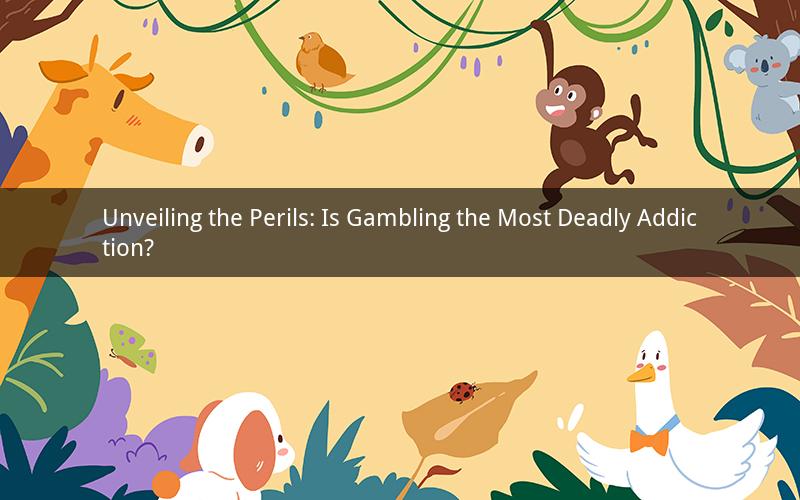
In the realm of addictions, gambling often stands as a silent predator, preying on the unsuspecting souls. The allure of wealth, thrill, and the promise of a life of luxury entices many. However, the dark side of gambling is a ticking time bomb, capable of devastating lives and leaving a trail of destruction. In this article, we delve into the question: Is gambling the most deadly addiction?
Gambling has been around for centuries, and its appeal is undeniable. From the ancient Chinese to the European aristocracy, gambling has been a part of human history. The thrill of taking a risk, the anticipation of winning big, and the allure of escaping reality have all contributed to its enduring popularity. However, with its rise, so too has the number of individuals grappling with its deadly clutches.
1. How does gambling addiction differ from other addictions?
Gambling addiction, often referred to as pathological gambling or compulsive gambling, is characterized by an inability to control gambling behavior. Unlike substance addictions, where the individual craves the physical sensation of the drug, gamblers crave the emotional high that comes from winning. This can lead to significant financial, social, and psychological consequences. Unlike other addictions, gambling addiction does not have a tangible substance, making it easier to overlook.
2. What are the signs of gambling addiction?
Identifying gambling addiction can be challenging, as the individual may deny or downplay their problem. However, there are several warning signs to watch out for. These include preoccupation with gambling, hiding gambling activities, lying about gambling habits, neglecting personal responsibilities, and feeling remorseful after gambling.
3. How does gambling addiction affect the individual?
The consequences of gambling addiction are far-reaching and can have devastating effects on the individual's life. Financial ruin is a common outcome, as individuals spend beyond their means to fuel their gambling habit. Relationships suffer as trust is broken, and family dynamics are strained. Additionally, the psychological toll can be severe, leading to depression, anxiety, and even suicidal thoughts.
4. How can gambling addiction be treated?
Treating gambling addiction requires a multidisciplinary approach, combining therapy, support groups, and, in some cases, medication. Cognitive-behavioral therapy (CBT) is often used to help individuals recognize and change their gambling-related thoughts and behaviors. Support groups like Gamblers Anonymous can provide a sense of community and camaraderie. Medications such as antidepressants may be prescribed to help alleviate symptoms of depression or anxiety.
5. Is gambling the most deadly addiction?
Determining whether gambling is the most deadly addiction is a complex question. While it is undoubtedly a dangerous addiction, it is challenging to quantify its deadliness compared to other addictions such as substance abuse, prescription medication, or even technology addiction. However, the impact of gambling addiction on an individual's life and well-being is profound, making it a significant concern.
The allure of gambling can be irresistible, but the consequences are often devastating. Is gambling the most deadly addiction? While it may not be the most dangerous addiction, its potential to destroy lives and communities cannot be ignored. It is crucial for individuals, families, and society to recognize the dangers of gambling addiction and seek help when necessary.
In conclusion, gambling addiction is a silent killer, capable of destroying lives and leaving a trail of devastation in its wake. By understanding its nature, recognizing the signs, and seeking help, we can combat this deadly addiction and provide a path to recovery for those caught in its grasp. Only through awareness and education can we hope to protect vulnerable individuals and prevent the further spread of this insidious addiction.